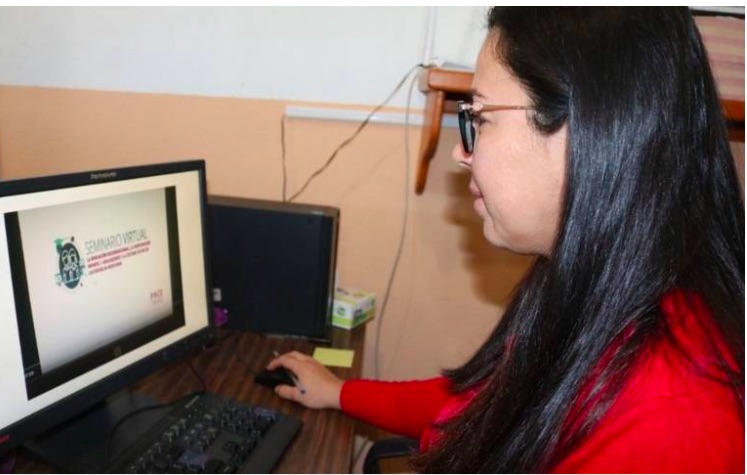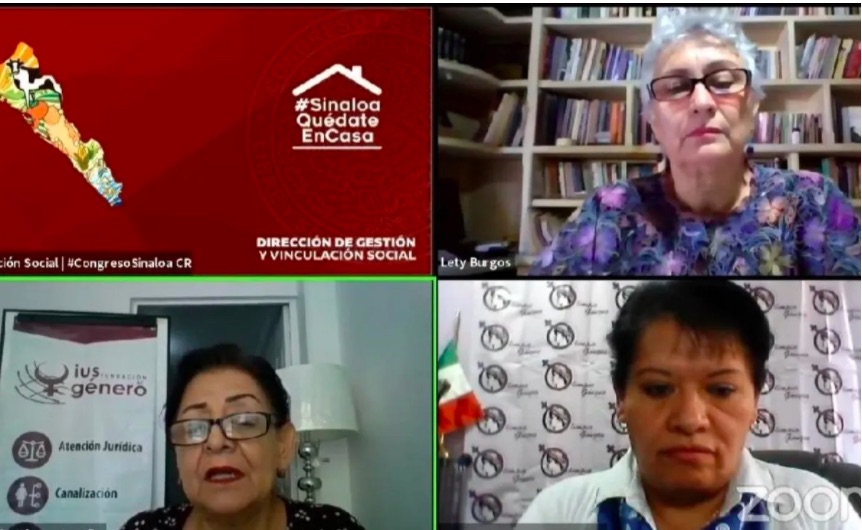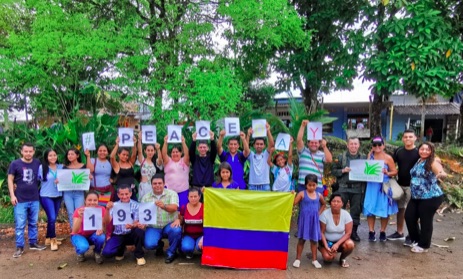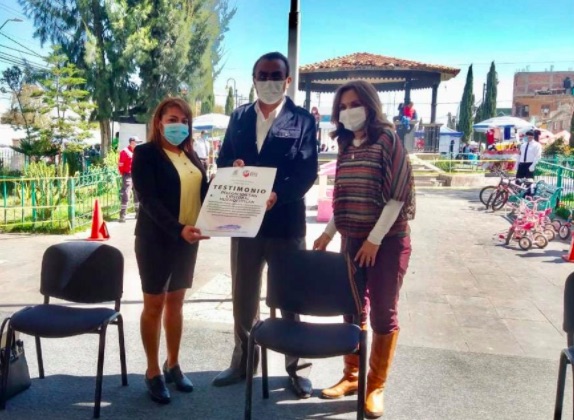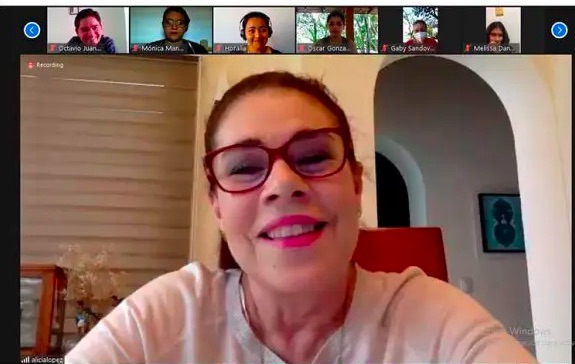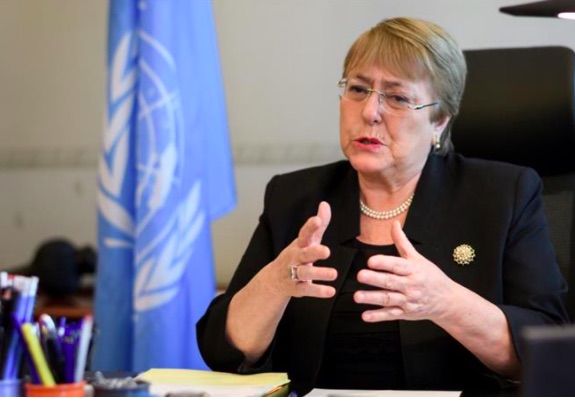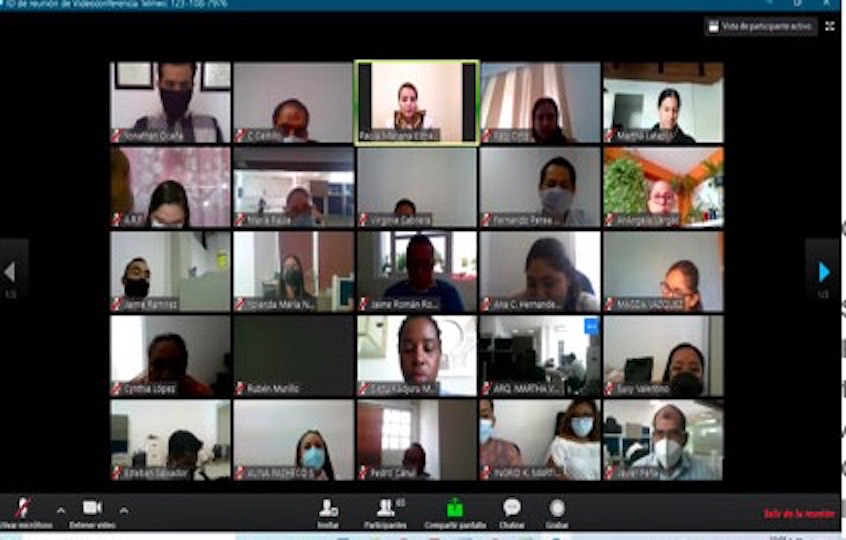. . SUSTAINABLE DEVELOPMENT . .
An article from the United Nations Food and Agriculture Organization
The 36th Session of FAO’s Regional Conference for Latin America and the Caribbean ended today with FAO Members in the region agreeing to join efforts to fight COVID-19 and promote sustainable agri-food systems through innovation, digital technologies, partnerships and enhanced data, particularly to strengthen food value chains and support smallholders farmers and the most vulnerable communities.

FAO Director-General QU Dongyu and Edward Centeno Gadea, Minister of Agriculture and Livestock, Nicaragua and Conference Chair
During the three-day virtual meeting (19 – 21 October) hosted by the Government of Nicaragua, all 33 Members, as well as representatives from civil society and the private sector, highlighted the importance of developing and applying innovative approaches to overcome the challenges facing food and agriculture in the region, particularly in relation to scaling up the use of digital tools.
“We need innovation, science and digital technologies to reach the Sustainable Development Goals,” said FAO’s Director-General, QU Dongyu, during the event, stressing that innovation and digital technologies “are the only way out for us to go forward.”
Several Latin American and Caribbean countries stressed that policies and programmes to promote digital solutions should mainly target small and medium-sized family farmers and poor and vulnerable rural communities, bridging the gaps in the rural population and leveraging their potential for inclusive and sustainable development. The International Platform for Digital Food and Agriculture, whose development has been led by FAO, was mentioned as an important tool for the exchange of experience and coordination among countries.
The Director-General noted that digital technology also contributed to make the Regional Conference a tremendous success in terms of attendance. The level of participation was unprecedented. The event was attended by one Prime Minister, three Ministers of Foreign Affairs, 50 ministers and 40 vice-ministers, and 346 other government officials, as well as 103 Observers from a wide diversity of sectors and organizations. Furthermore, close to 30,000people are estimated to have followed the Conference through digital platforms.
“The Digital FAO is more transparent, more open to dialogue, more inclusive, and, above all, more responsive to the needs and priorities of its Members,” Qu said.
Enhanced partnerships and data
The Regional Conference affirmed that in the midst of the COVID-19 pandemic, it is fundamental to strengthen partnerships, multilateralism and international solidarity. In this sense, countries welcomed FAO’s comprehensive COVID-19 Response and Recovery Programme and requested support from the UN agency for the design, implementation and assessment of public policies and programmes. These, they noted, should focus on job creation, social and productive inclusion, healthy food for the whole population, school feeding, access to water for production and consumption and increasing productivity.
“The FAO COVID-19 Response and Recovery Programme is now in motion. We must work together to minimize the impact that the pandemic will have on our food systems, livelihoods and health,” the Director-General said.
(The article is continued on the right side of this page)
(Click here for a Spanish version of this article.)
Question for this article:
What is the relation between movements for food sovereignty and the global movement for a culture of peace?
(This article is continued from the left side of the page)
The importance of data collection and analysis for the development of a new generation of public policies and programmes was also highlighted by countries, as well as agreements and alliances between the public, private, scientific, academic and civil society sectors, to promote governance of food systems that enable healthy diets and sustainable food systems.
In this context, countries supported the Hand-in-Hand Initiative to promote effective cooperation mechanisms between recipient and donor countries, as well as to mobilize resources from financial institutions and the private sector, particularly to reduce the development gaps that affect lagging rural territories in the region. The initiative is equipped with state-of-the-art tools – the Hand in Hand Geospatial Platform and the Data Lab for Statistical Innovation – to support countries and other stakeholders with data collection and analysis for decision-making and impact assessment.
Transforming food systems towards better nutrition in the region
The Regional Conference held a special event organised by the Committee on World Food Security (CFS) to discuss ways to transform food systems and ensure healthy diets for all, entitled “Driving Transformation Toward Sustainable Food Systems and Healthy Diets.”
The region of Latin America and the Caribbean is undergoing a rapid nutritional transition. Since 2014, hunger has grown again by 13 million people, and the economic impact of the COVID-19 pandemic is likely to lead to an increase in the incidence of hunger. Today, almost 48 million people suffer from hunger in the region. At the same time, obesity levels are also on the rise affecting around 25 percent of the population.
“We need to join all our efforts and work together, now more than ever before”, said FAO Director-General QU Dongyu opening the special event. “Because, we are not on track to eradicating hunger, food insecurity and all forms of malnutrition by 2030. And because the COVID-19 pandemic comes at a time when food insecurity was already increasing in the region”.
He noted that the pandemic and the related containment measures are especially damaging for Small Island Developing States, which heavily depend on food imports, and called on the countries in the region to step up efforts to make their food systems more efficient, healthy and sustainable, stressing that agri-food systems transformation should be country-owned and country-led.
For his part, the CFS Chairperson and Permanent Representative of Thailand to the Rome-based Agencies, Thanawat Tiensin, noted that the CFS Voluntary Guidelines on Food Systems and Nutrition are currently under negotiation by all CFS members and are expected to be adopted at the next CFS Plenary session in February 2021. He urged all stakeholders including governments, parliamentarians, private sector and civil society to improve cross-sectoral policy coordination and join efforts to turn policies into action.
During the event, the FAO Director-General and the CFS Chairperson were joined by Senator Jorge Pizarro of Chile, President of the Parliament of Latin America and the Caribbean (PARLATINO); Marisa Macari, El Poder del Consumidor, Mexico, Representative of the CFS Civil Society Mechanism; and Maria Nelly Rivas, Cargill, Representative of the CFS Private Sector Mechanism, as well as regional policy-makers and experts.
The CFS was established in 1974, hosted by FAO, as an intergovernmental body to serve as a forum in the United Nations System for review and follow-up of policies concerning world food security. It is considered the most inclusive platform in the UN System.
In his closing remarks to the Regional Conference, the Chairperson and Minister for Agriculture and Livestock of Nicaragua, Edward Centeno Gadea, highlighted the importance of FAO’s work to support rural families, particularly the most vulnerable ones, and affirmed that “fighting against poverty is an act of peace.”
More information about the Regional Conference for Latin America and the Caribbean can be found here.

